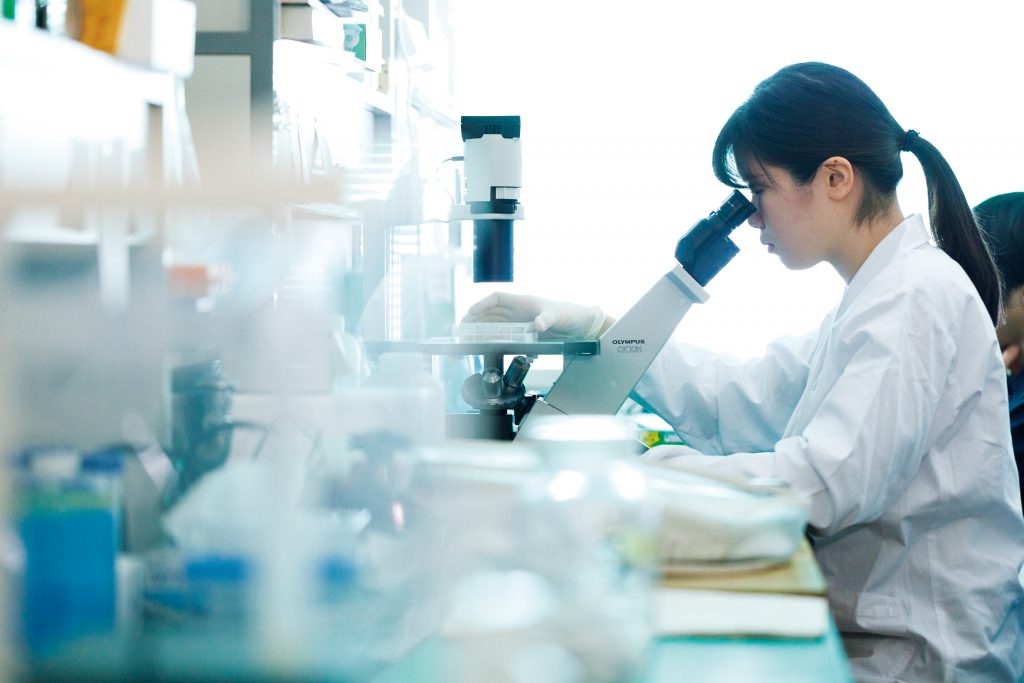Researchers in the Sadaie Laboratory in the Faculty of Science and Technology’s Department of Applied Biological Science are studying the mechanisms of, and medicines for treating, cancer in humans. “Telomeres” are the key to this research.
Telomeres are the end segments of the DNA found in the cells that make up our bodies. In normally functioning cells, every time a cell divides, the telomeres become slightly shorter and shorter until, eventually, they get down to a certain point where the cell will stop dividing. This process is known as “cellular senescence.”
On the other hand, however, cancer cells can elongate telomeres to counteract this shortening. Thus, cancer cells will continue to divide and proliferate indefinitely inside the body.
If a method can be found for stopping this “telomere maintenance mechanism,” and a material discovered which can achieve this effectively, it would benefit cancer treatment development.
It is in this context that researchers in the Sadaie Laboratory are studying “telomerase,” the protein responsible for lengthening the telomeres of cancer cells, and are working on developing drugs for suppressing its activity.
In addition, given that cellular senescence causes cells to stop dividing, research is being carried out not only into how to kill cancer cells but how to make cancer cell senesced, as senescence leads to the cessation of cellular proliferation.

The development of telomerase-suppressing drugs is effective for treating around 90% of cancers. However, the researchers in the Sadaie Laboratory are also working on the development of drugs that will treat those remaining 10% of cancers.
Specifically, they are studying “chromatin,” which is a complex of DNA and protein associated with the cell’s telomere maintenance mechanism. By finding a chemical substance which allows them to change chromatin’s shape, they will be able to control the telomere maintenance mechanism and the proliferation of the cancerous cells.
Among this 10% remainder of cancers are many “rare cancers” for which the incidence rate is low and little headway has been made into treating them. However, Associate Professor Sadaie believes that, as a researcher focused on basic science, if a cancer has been identified, it is his mission to research it.
By actively pursuing research into treatments which have a narrow scope of applicability, and thus could not be carried out by companies, the researchers in the Sadaie Laboratory are improving happiness and quality of life for even more people in society.
■ Main research content